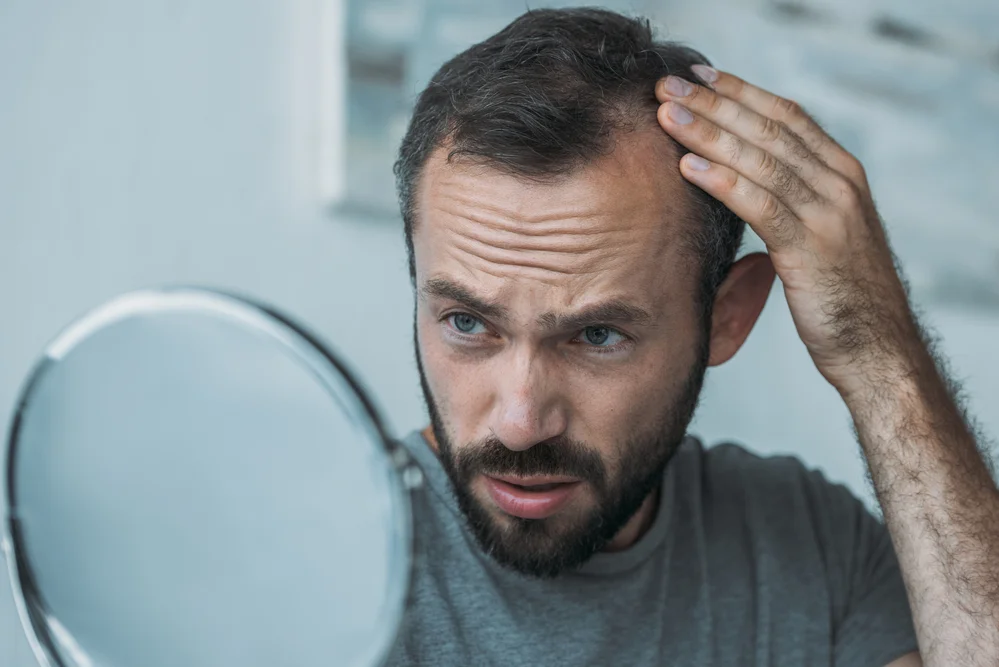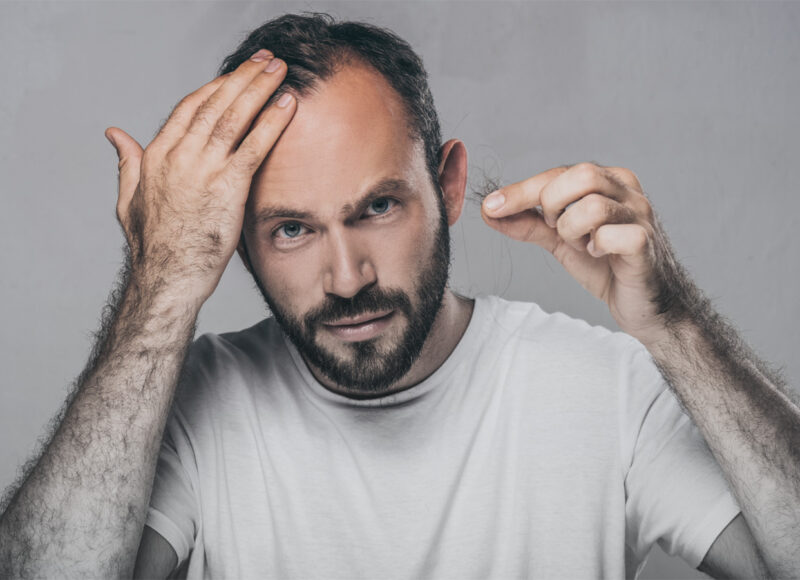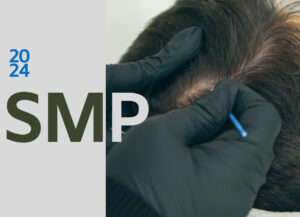Is hair loss after surgery normal? This article will clarify why hair loss can happen after surgery, providing insights into its causes, frequency, and potential strategies for managing or preventing it.
Introduction
If you are preparing for surgery or you have recently had surgery, you might have questions about post-surgical hair loss. This is something that happens to several people, though it’s not a side effect that affects everyone. Nonetheless, you may have questions and concerns about this phenomenon.
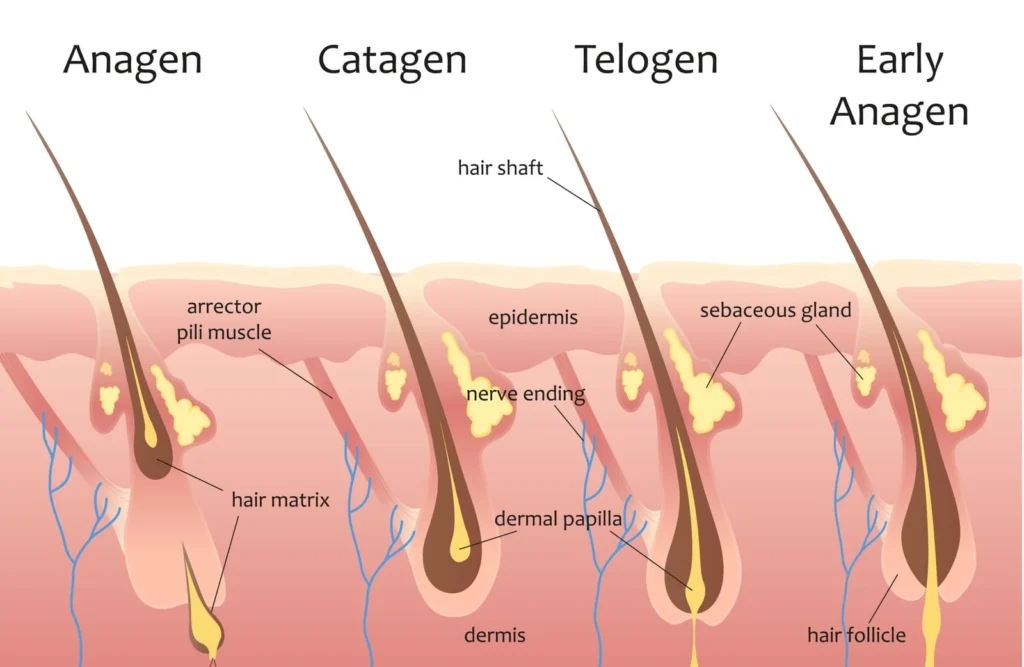
Natural hair growth cycle and its phases
After surgery, hair loss is best understood in the context of your hair growth cycle.
- Anagen: This is the first active part of the cycle. During this phase, your hair follicles start to take shape and grow your hair fiber. This phase is the longest lasting, with a single hair growing for years at a time.
Note: Nearly 90% of all the hair on your body at any given time is in this phase.
- Catagen: This is the second transition phase, where the growth has stopped. Once it happens, your hair follicles become smaller, and your hair separates from the follicle. This phase is very short by comparison, only lasting about ten days.
Note: Only 5% of your hair at any given time is in the catagen phase.
- Telogen: This is the third phase, a bit longer than the second, lasting an average of three months. During this phase, your hair does not grow at all, but new hairs start to appear in the hair follicles, which lose hair in the second phase.
Note: An average of 10-15% of the hair on your head is in this phase at any given time.
Is hair loss common after surgery?
What does this cycle have to do with hair loss after surgery? At any given time, people are shedding hair, up to 100 hairs per day.
Is hair loss common after surgery? It is not a side effect that most people have, but for those who do, it is often attributed to the stress of surgery.
Surgery can be stressful, and the lead-up and recovery can exacerbate that anxiety. Such high cortisol levels can cause your hair to prematurely go into the third phase or telogen. However, there are several other factors that are more likely to explain stress and hair loss.
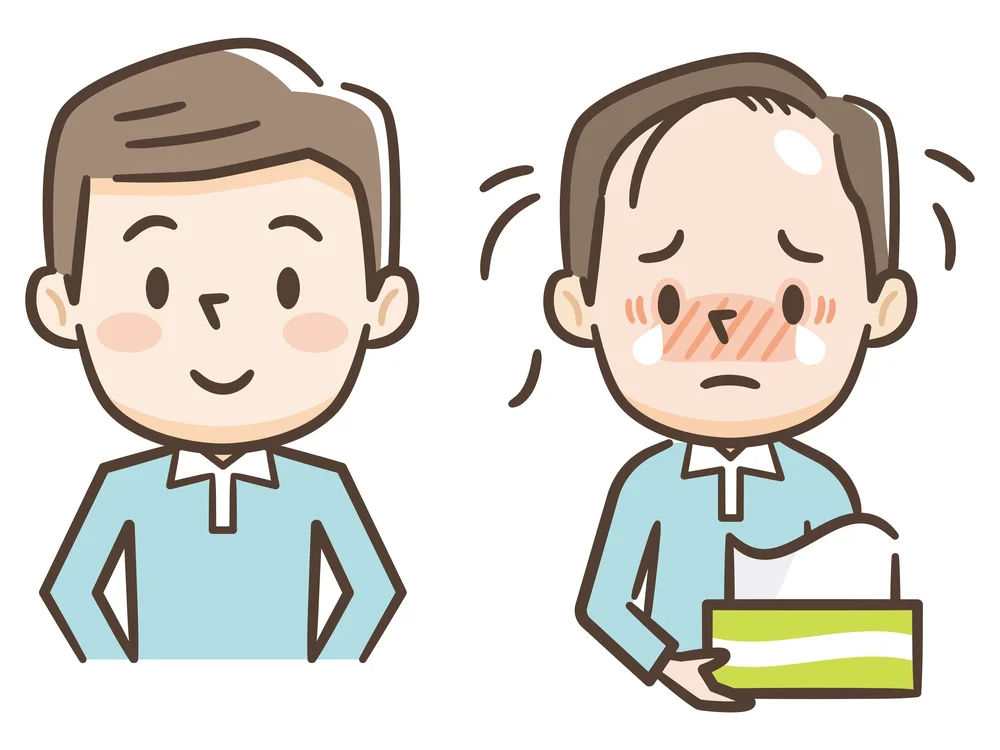
What causes hair loss after surgery?
There are various factors that can contribute to hair loss post-surgery, including the following:
Physiological stress
During times of high stress, the body moves vital nutrients to the heart, the lungs, and other vital organs. This is a common result of stress, and it means that less important functions, such as hair and nail growth, get diminished.
Without the right level of nutrients, hair gets weakened, and hair follicles can stop producing new hair. It’s common for people who experience hair loss after surgery to think that it is directly because of their surgery when, in reality, it is often a result of major stress.
Anesthesia
Anesthesia can also be a cause of stress and hair loss, and it is often overlooked while blame is placed on the surgery.
Medications
Several medications can cause hair loss as one of their side effects. Those who have undergone surgery may mistake the surgery as the cause of their hair loss when, in fact, it was the medication.
If this is the case, most of the hair loss will right itself once the medication is done with.
Nutritional deficiencies
Nutritional deficiencies can happen before surgery, but they usually happen after when someone is in recovery, and they may not be eating the way that they normally would. These nutritional deficiencies can exacerbate symptoms like stress and lead to hair loss.
Telogen effluvium
This is when the stress of your surgery or the events surrounding your surgery causes your hair to prematurely go into the third phase, where it falls out.
Shock loss
Shock loss occurs when too high of a density is placed around existing hairs. Shock loss typically occurs when over 50 grafts are placed in a square centimeter. This may be due to the competing existing hair competing with the blood supply of the native hairs. If you have minimal hair loss or are grafting in an area with a lot of existing hair, it is best to graft a lower density to avoid the risk of shock loss. Ludwig patterns are more susceptible to shock loss.
Hair Loss Cycle
It is not possible to predict when your hair loss occurs. It typically occurs in plateaus. Your hair will be stable for years and suddenly fall off a plateau. This hair will stabilize again for years. If your hair does fall of a plateau after a transplant, it is unfortunate timing. This hair will come back in provided there are enough stem cells to stimulate a new follicle. This can be avoided by stimulating your hair into anagen with medical or regenerative therapy prior to a transplant.

How to mitigate the risk of excessive hair loss after surgery
The good news is this will typically resolve itself within two or three months. Still, there are things you can do to mitigate your risks.
Reduce stress
The best thing you can do if you are preparing for surgery is to set aside time throughout the day to exercise, utilize self-care, and otherwise relax. This can help you minimize the amount of stress associated with your surgery and, in so doing, reduce the risk of after-surgery hair loss.
Talk to your doctor
If you have an upcoming surgery, educate yourself as much as you can about what to expect, and make sure to talk about any concerns or fears you have with your doctor. Despite apprehensions that might be associated with surgery, choosing to focus on the potential positive outcomes of that surgery can go a long way toward reducing stress as well. This will help mitigate the risk of hair loss after surgery.
Proper nutrition
In addition to discussing any concerns you have with your surgical team and reducing stress, you will want to focus on proper nutrition before and after your surgery. Dietary supplements can go a long way toward helping you maintain the right nutritional balance and avoid a nutritional deficiency.
Depending on the circumstances surrounding your surgery, your appetite might change, but making concentrated efforts to consume fresh fruits and vegetables, fish, and whole grains can ensure you get the vitamins and nutrients you need. Barring that, you can always supplement.

Potential treatments and remedies for post-surgery hair loss
Is hair loss common after surgery? It is not something that happens to everyone, but if it has happened to you, rest assured that there are several potential treatments and remedies.
- Firstly, remember that in most cases, what you are experiencing is a normal response to the stress associated with surgery, and while it might be shocking, it typically fixes itself within two or three months. As such it is best to wait at least a few months after surgery to see what transpires. You might be surprised at how quickly your hair comes back to its original strength and luster after a few months of recovery.
- Secondly, if that is not enough, keeping proper nutrition can help thwart any nutritional deficiencies and overcome side effects from certain medications. You don’t have to wait a few months to start implementing vitamins that you know will increase your overall health and hair strength. The sooner you start implementing healthier foods, the easier a time your body will have recovering, and bolstering your hair. Incorporate vitamins such as:
- Vitamin A
- Vitamin B7
- Vitamin B12
- Vitamin C
- Vitamin D
- Vitamin E
- Reduce stress. A big part of hair loss after surgery is because of stress. Stress can indirectly change the growth cycle of hair and encourage poor circulation. By working immediately before and after surgery to control stress, you can control some aspects of hair loss. Examples of stress reducers include the following:
- Walking meditation
- Seated meditation
- Driving meditation
- Eating meditation
- Exercise
- Journaling
- Sleep hygiene
- Reading
- Sitting in the sun
- Walking
- Calling a friend
- Learning a new craft
- Listening to lectures
- Finally, there are also many other potential treatments, like medications, topical applications, and laser therapy, that you can discuss with a professional. Sometimes medications come with contraindications which is why it is best to speak with a doctor first. Other treatments have fewer side effects and may be covered by insurance.
How to reduce the risk of hair loss prior to a transplant
There are many ways to reduce the shedding phase after a transplant. Taking care of your hair prior to a procedure will improve the quality of your existing hair as well as increase the number of hair in the area reducing the graft count. Treatments such as vitamins, exercise, nutrition optimization, medical, and regenerative therapies will play a factor in keeping your hair anagen.
Here is a list of treatments you can undergo prior to a transplant to prevent shedding after a transplant.
- Derma Rolling
- Intake of supplements such as Vitamin B12, Zinc, and Magnesium
- Diet high in Iron
- Exercise 3 times per week to improve blood circulation
- Topical Finasteride
- Regenerative Medicine such as PRP, CRP, Exosomes, Adipose Stem Cells, and Amniotic membrane
Summing Up
Is hair loss after surgery normal? Surgery and the stress around surgery can contribute to many side effects, including hair loss. There are many common causes, such as anesthesia, psychological stress, medications, and nutritional deficiencies.
While hair loss may be a temporary side effect of surgery, it is generally manageable and reversible. In most cases, it reverses itself within two or three months. If you have any concerns about hair loss, be sure to discuss it with your healthcare team before and after surgery to explore any potential treatments and remedies that you might use.


